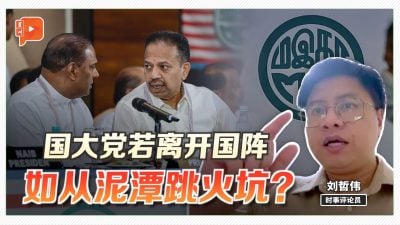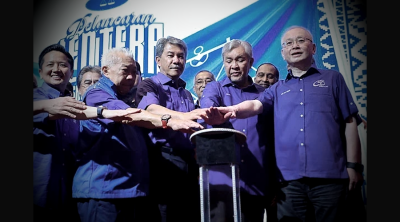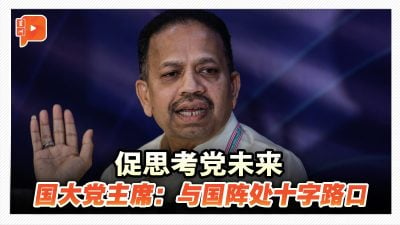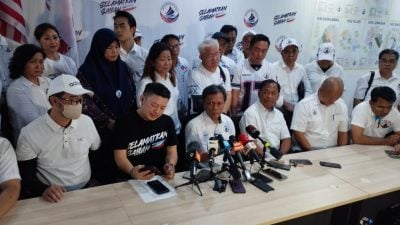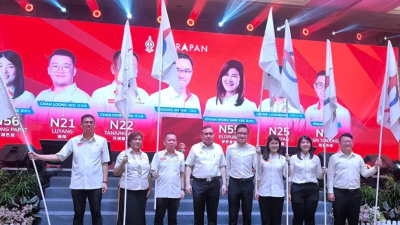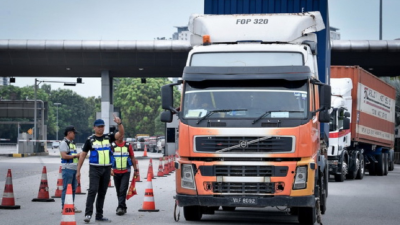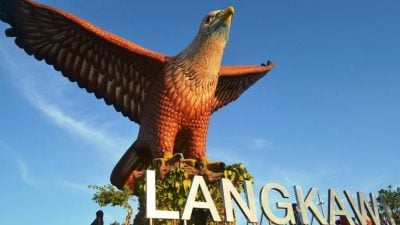
Kedah Menteri Besar from PAS, Datuk Seri Muhammad Sanusi Md Nor predicted at the party’s annual general assembly that parliament would be dissolved after December 2026 to pave way for the next general election.
Meanwhile, DAP secretary-general Anthony Loke said he supported holding the 16th general election together with state elections.
Loke’s proposal further strengthens the possibility of elections being held next year.
Anthony Loke supports simultaneous state and national elections for two main reasons: cost-saving and better chances of winning.
However, holding elections simultaneously across Peninsular Malaysia requires cooperation from both Umno and PAS, which is not easy.
Traditionally, state elections in Sabah and the peninsula were held concurrently with parliament. But after the Sheraton Move, political maneuvering broke that alignment.
The first break came with the snap election in Sabah.
In July 2020, frequent rumors surfaced that the opposition were to buy in state assemblymen. Then-Bersatu secretary-general Datuk Seri Hamzah Zainudin met with Sabah Governor Tun Juhar Mahiruddin informing him of plans to form a new state government.
In response, then-Chief Minister Datuk Seri Shafie Apdal sought the Governor’s consent to dissolve the state assembly.
The power grab by Perikatan Nasional forced Sabah to hold its 16th state election on September 26, 2020.
With the state assembly due to expire on November 11 this year, Sabah can only hold elections separately.
The Melaka state election on November 20, 2021 was also triggered by a power struggle.
On October 4, 2021, two Umno assemblymen, one from Bersatu, and one independent withdrew their support for Chief Minister Datuk Seri Sulaiman Md Ali, leading to the collapse of the state government.
The following day, the state assembly speaker announced that the governor had agreed to dissolve the state assembly.
The Melaka state assembly began on December 27, 2021, so the five-year term will expire on December 26 next year.
As for Johor state election on March 12, 2022, Umno called it after its victory in Melaka to prove the party remained the people’s choice—despite its leaders Datuk Seri Dr. Ahmad Zahid Hamidi and former prime minister Datuk Seri Najib Tun Razak facing corruption charges.
Barisan Nasional regained a two-thirds majority in Johor, and that win pressured then-prime minister Datuk Seri Ismail Sabri to dissolve parliament.
Under Zahid’s push, Ismail finally announced the dissolution on October 10, 2022.
However, Perikatan Nasional and Pakatan Harapan opposed holding elections at year-end, citing political, economic, and flood concerns.
As a result, six states—Kelantan, Terengganu, Kedah, Penang, Selangor, and Negeri Sembilan—chose not to follow Parliament’s early dissolution.
Only Pahang, Perlis, and Perak dissolved their state assemblies and held simultaneous polls with parliament.
The six remaining states held elections on August 12, 2023. Their terms are only two years in, meaning they can defer their next elections until 2028.
A joint election allows the federal ruling coalition to consolidate resources to defend its seats and governments while targeting marginal constituencies. And with a much larger battlefield, Perikatan’s leaders will be stretched thin.
If simultaneous elections are to be held, they must be held when Melaka’s state assembly expires on December 26 next year.
Prime Minister Datuk Seri Anwar Ibrahim would first need to persuade Ahmad Zahid to dissolve Umno-led states and secure agreement from PAS for the four states it controls, before simultaneous elections can be held across the peninsula.
Separate national and state polls are costly. For example, the 2022 Johor election cost nearly RM100 million, while the six state elections cost RM600 to 700 million.
For the ruling coalition, however, winning is more important than cost.
A joint election allows the federal ruling coalition to consolidate resources to defend its seats and governments while targeting marginal constituencies.
And with a much larger battlefield, Perikatan’s leaders will be stretched thin.
PAS has already announced its plan to capture Pahang, Perak, and Selangor. This means Umno must cooperate with Pakatan to prevent the “green wave” from resurging.
Meanwhile, tensions between PAS and Bersatu are intensifying. Holding elections before their relationship improves would benefit the Unity Government.
As Loke noted, the government is past mid-term and the country has entered “election mode.”
Anwar’s Budget 2026, to be tabled on October 10, is expected to include voter-friendly announcements.
The cut in RON95 petrol from RM2.05 to RM1.99 per liter starting September 30 is just the beginning.
Anwar must carefully consider the best timing for polls given the current economic factors.
US President Donald Trump’s global tariff policy could slow or even trigger a recession, making earlier elections safer.
Najib’s mistake of delaying elections until the very end and losing power should serve as a lesson.
Ultimately, the outcome of the Sabah state election will serve as an indicator, influencing Anwar’s decision whether to go for simultaneous national and state elections.
ADVERTISEMENT
ADVERTISEMENT







